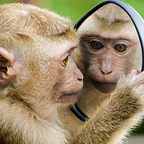Octopuses Starve Themselves to Death After Giving Birth
Octopuses are fascinating creatures, and also a bit frightening. Out of all of the most intelligent animals on earth, they may be the most alien from us.
But the final days of a female octopus after it reproduces are quite grim, at least to human eyes. Octopuses are semelparous animals, which means they reproduce once and then they die. After a female octopus lays a clutch of eggs, she quits eating and wastes away; by the time the eggs hatch, she dies. In the later stages, some females in captivity even seem to intentionally speed along the death spiral, banging into the sides of the tank, tearing off pieces of skin or eating the tips of their own tentacles. (If you’re wondering, the males don’t get off any easier. Females often kill and eat their mates; if not, they die a few months later, too).
Researchers removed the optic gland, a gland similar to the pituitary gland of humans, from octopuses and found that it stopped females from this behavior. Later research isolated molecular signals the optic gland sends after reproduction.
The question remains though, how could such a trait have evolved? One proposal from the article is that octopuses are often cannibalistic. An octopus without this trait might eat her children and fail to have her genes propagate, while an octopus with this trait may die but at least has a chance of spreading her genes.
Wittgenstein said “If a lion could speak, we could not understand him.” That may be true, but a lion isn’t all that different from us. It’s at least a vertebrate, like most other life we’ve recognized as highly intelligent. How much less able would we be to understand an octopus?
